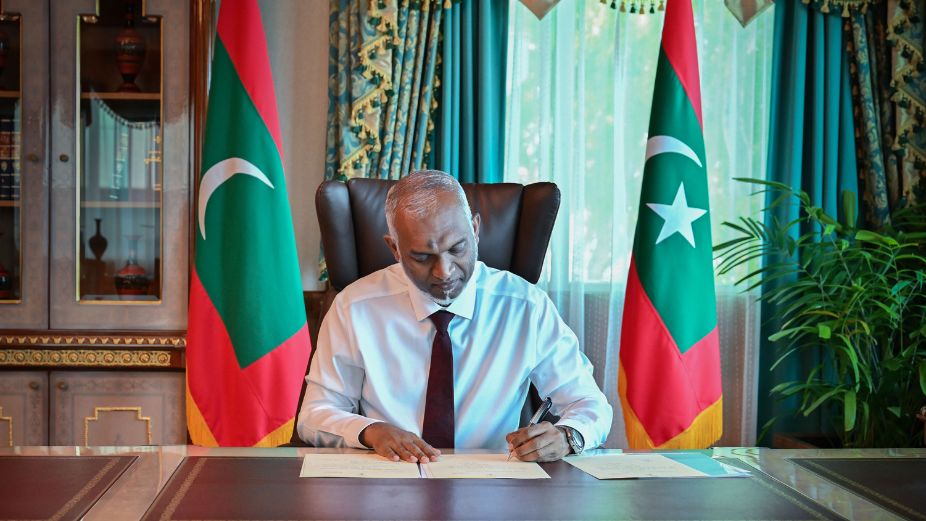
President Dr Mohamed Muizzu has ratified an amendment to the Maldives Immigration Act, enforcing a ban on the entry of Israeli passport holders into the country. The amendment, passed unanimously by Parliament today, comes in response to Israel’s ongoing military campaign in Gaza and is framed by the government as a demonstration of solidarity with Palestine. But the path to this legislation—and the changes it underwent—paints a more complex picture.
While the ban is now in effect, allowing immigration authorities to deny entry to travellers bearing Israeli passports, the legislation is a heavily altered version of the original bill first submitted in May 2024 by opposition MP Meekail Ahmed Nasym of the Maldivian Democratic Party (MDP). His proposal aimed for a broader prohibition, extending the entry ban not only to Israeli passport holders but also to those with dual citizenship.

The intention behind the original bill was clear: to ensure individuals linked to the Israeli government or its armed forces, many of whom hold dual citizenship, would not be able to enter the Maldives by simply switching passports. The bill sought to amend Article 8 of the Immigration Act, which outlines who may be denied entry to the Maldives, to include all Israeli citizens—regardless of the passport used.
However, following a Cabinet decision in June 2024 to support the idea of a ban, the ruling People’s National Congress (PNC) opted to adopt the bill and push it through Parliament with significant amendments. The bill was referred to the Security Services Committee, where it remained dormant for more than 300 days before being revived and passed.
Crucially, the committee revised the bill to remove the provision concerning dual nationals. Citing technical limitations, Maldives Immigration stated that there was no viable mechanism to determine dual citizenship status at the border. Consequently, the law now applies only to individuals presenting Israeli passports upon arrival.
The revised amendment also lacks a clear legal framework for determining when the ban should be lifted. Instead, it vaguely states that the restriction will remain in place until “Israel ceases its inhumane attacks on Palestinians,” a phrase left undefined in the legislation.
While the government has celebrated the passage of the amendment as a firm diplomatic stance, critics, including the bill’s original proponent, have argued that the revisions have rendered it largely symbolic. Concerns remain that senior Israeli officials and others with dual nationality could still travel to the Maldives undetected, using alternative passports.
The law was passed against the backdrop of rising public anger in the Maldives over the humanitarian catastrophe in Gaza, where more than 60,000 Palestinians have been reported killed since hostilities escalated in October 2023. Protests in Malé and pressure from the opposition contributed to the government’s decision to move forward with the bill, after months of delays.
Ultimately, while the Maldives has now joined the small number of countries imposing entry restrictions on Israeli passport holders, the final form of the legislation reflects a compromise between political will, administrative capacity, and public pressure rather than the sweeping stance initially envisioned.












